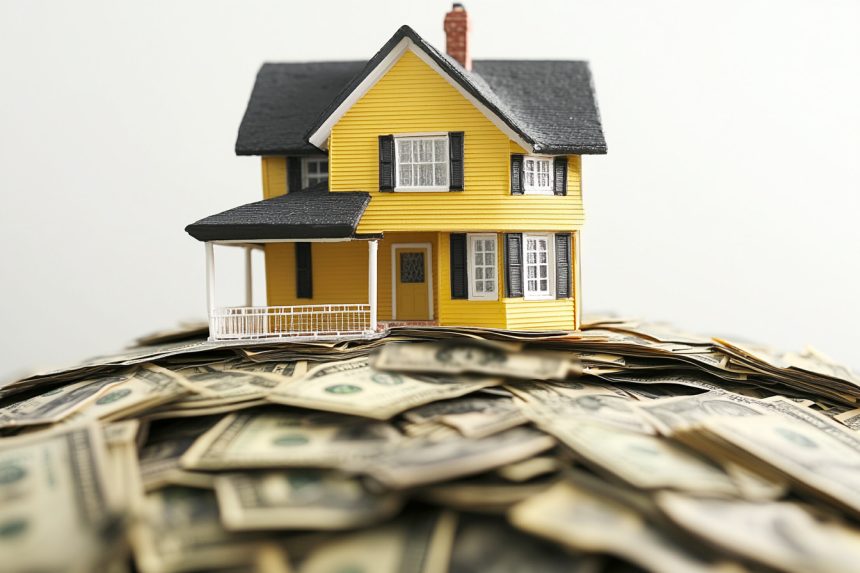The right to adequate housing is a human right recognized in international human rights law as part of the right to an adequate standard of living.
The UN’s Universal Declaration of Human Rights (UDHR) and the International Covenant on Economic, Social and Cultural Rights both recognize the right to adequate housing.
In Nigeria, affordable housing for citizens has now become a mere mirage due to several factors. Housing TV Africa examines 5 reasons why affordable housing has become an elusive dream for millions in Africa’s most populated nation.
Income Crisis/ High Cost of Housing
Nigeria’s economy has faced some significant challenges in recent times exacerbated by the removal of fuel subsidies and devalued naira which has driven the cost of housing to new heights. Affordability in the housing sector in Nigeria will continue to take the front burner as statistics and data have shown that government policies and actions on affordable housing do not support the statistics on the ground.

In Nigeria, the minimum wage of a low-income earner is N70,000, about $45 and the average monthly rent for a two-bedroom flat is N35,000 monthly. When one compares it with the minimum wage of N70,000, that is 50% of an average worker’s earnings. This is in contrast to the United Nations rules which state that workers should not spend more than 30% of their earnings on housing.
In the same vein, according to information on the portal of Renewed Hope Homes, a mass housing program of President Bola Tinubu’s administration, a one-bedroom apartment is listed at 22,500,000; a two-bedroom for 41,000,000; and a three-bedroom for 49,000,000.
If a worker spends N21,000 representing 30% of monthly earnings to buy a one-bedroom, it will cost a worker N252,000 annually. When the price of a one-bedroom totalling N22,500,000 is divided by the annual 30% housing deductions of the worker, it will take 89 years for an average low-income earner to successfully pay for a one-bedroom apartment under the renewed Hope Homes initiative of the current administration.
This brings to the fore, the question of affordability in the Nigeria Housing Sector.High Cost of Building Materials and Construction Costs
Real estate developers cannot build affordable houses because of the rising prices of building materials and construction costs. Developers do not respond to the demand for housing among low-income earners because Many households find it difficult to afford rent and home prices that cover the expenses of building new houses. Unlike in Europe and in the United States where there are affordable social mass housing programs low interest on mortgage finance, and improved sectoral allocations, it is not so in Nigeria and other African countries.
The cost of building materials has risen sharply due to inflation, import dependency, and supply chain disruptions. Essential materials like cement, steel, and roofing sheets have become more expensive, increasing the overall cost of construction and, consequently, the price of houses. This inflationary pressure on construction costs makes it difficult for developers to build affordable housing.
Stifling Government Bureaucratic Bottlenecks and Regulations
In Nigeria, certain government regulations and bureaucratic bottlenecks also raise construction costs and reduce the overall supply of houses. Many estate developers pay a humongous sum of money to get government agencies and regulators to get their building plans approved, pay more for certificates of occupancy and wait longer before they are processed. These extra costs are transferred to the end users (buyers)

Insufficient Government Funding
The government needs to match its talk on housing with action. The Renewed Hope for 20,000 Housing units annually will not be realized if the Ministry of Housing and Urban Development continues to be underfunded. The annual budget for housing has continued to reduce year in, from ₦99 billion last year to ₦88 billion this year, this does not reflect a serious approach to tackling the housing deficit in Nigeria.
Lack of Mortgage System
Nigeria lacks an Effective mortgage system and developers find it difficult to access land for real estate development. The absence of foreclosure law in the country which allows a lender to take possession of a mortgaged property if the borrower fails to make their mortgage payments.
In the same vein, where available by private lenders, the high double-digit interest on mortgage loans is making it unattractive for low-income earners.
Affordable housing in Nigeria remains a significant challenge due to economic pressures, high construction costs, bureaucratic bottlenecks, insufficient funding, and an ineffective mortgage system. Addressing these issues requires concerted efforts from the government to ensure that affordable housing becomes a reality for all Nigerians.



